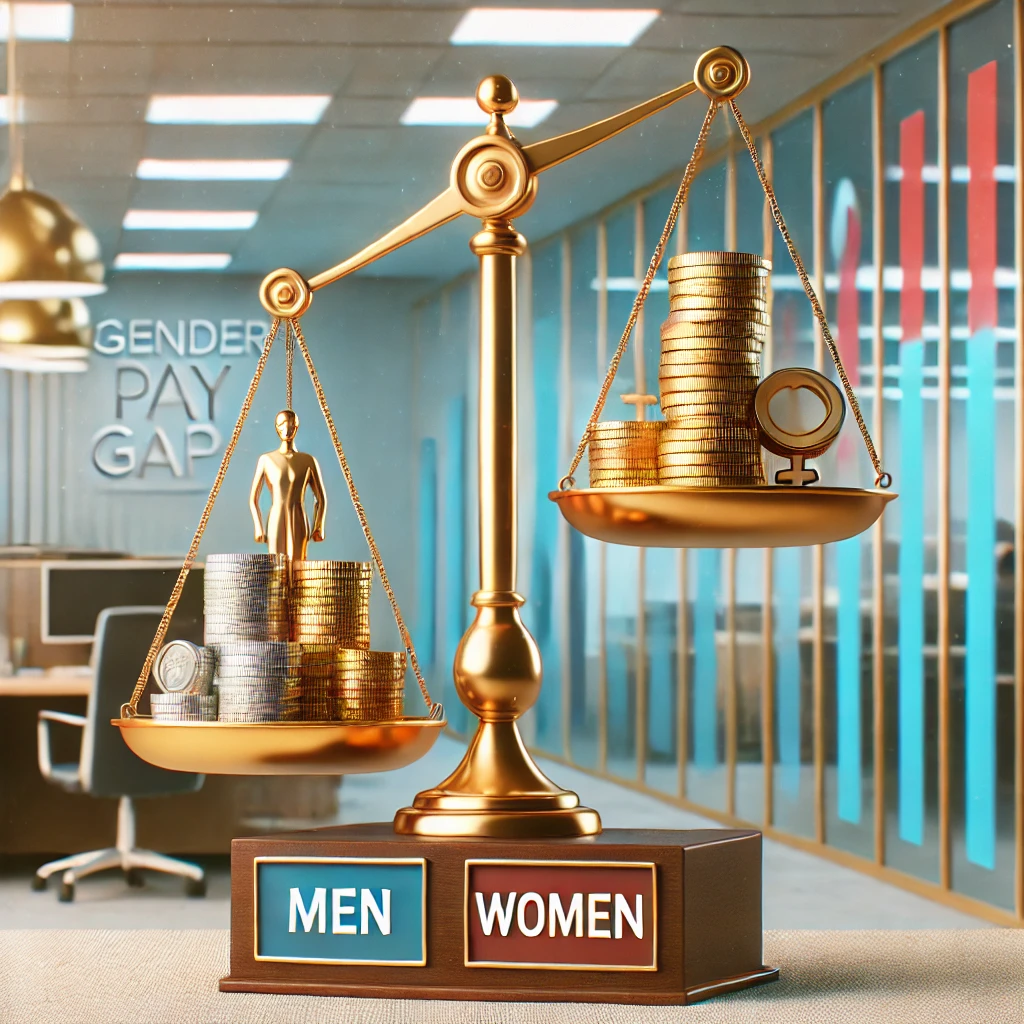Women Are Done Waiting. When Will Women Finally Be Paid Their Worth?
As of today, I, like many women across the globe, am effectively working for free for the rest of the year. This isn’t hyperbole – it’s a harsh reality. The gender pay gap is now 11.3%, up from 10.7% last year. This disparity means that from this point forward, our contributions are undervalued compared to male counterparts.
In the UK, this day is marked as Equal Pay Day, and this year it has come earlier than last, a concerning indicator of the slow pace of progress.
The gender pay gap is not just a statistic, it’s a reflection of deep-rooted inequalities that persist in workplaces, homes, and societies. It impacts women’s financial independence, career trajectories, and even their retirement security. The implications go beyond economics, it’s about fairness, respect, and the acknowledgment of the vital role women play in driving societies forward.
Women are more likely to take on part-time, low-paid, or insecure work to balance caregiving responsibilities. This affects their earning potential, often trapping them in lower-paying roles.
A lack of affordable and accessible childcare forces many women to leave their careers or settle for jobs that don’t offer the flexibility or pay they deserve. Mothers face a ‘Motherhood Penalty’ that fathers don’t experience.
Even when men and women work the same hours and in the same roles, nearly two-thirds of the gender pay gap remains unexplained. This points to pay discrimination as a major factor still holding women back. This disparity isn’t justifiable – it’s a systemic issue that demands urgent action.
Women are often underrepresented in high-paying industries and leadership roles. They are more likely to take on unpaid caregiving responsibilities, which limits their career growth. Additionally, discriminatory practices and biases, whether conscious or unconscious, still permeate workplaces.
The gender pay gap is not just a women’s issue, it’s a societal issue.
Why We Can’t Wait
Progress towards pay equity has been frustratingly slow. At the current rate of change, it could take decades, if not centuries, for women to achieve economic parity with men. This is simply unacceptable. Women’s contributions are invaluable, whether in the workforce, at home, or in society, and they deserve to be compensated fairly.
Inaction perpetuates inequality, stifling economic growth and innovation. Numerous studies have shown that closing the gender pay gap would lead to significant boosts in GDP. Equal pay isn’t just morally right, it’s economically smart.
How Do We Bridge the Gap?
- Transparency in Pay
Employers must commit to transparent salary structures. Pay audits and open communication about salaries can help identify and address inequities. - Policy Change
Governments have a critical role to play by enforcing equal pay legislation and holding companies accountable. Policies supporting parental leave and affordable childcare can also help balance the scales. - Leadership Representation
Women must have a seat at the table. Increasing female representation in leadership roles ensures diverse perspectives and helps dismantle biases that contribute to pay inequality. - Cultural Shift
Societal attitudes towards women’s work, whether in the office or at home, need to change. Until we value caregiving, emotional labour, and other traditionally “feminine” contributions as much as we do more “masculine” roles, true equality will remain out of reach.
The gender pay gap is not just a women’s issue, it’s a societal issue. Achieving pay equity requires collective effort from individuals, employers, and policymakers. It’s time to move beyond conversations and take tangible steps to close the gap.
Equal pay isn’t a privilege, it’s a right. Until we achieve it, days like today (and for the rest of the year) will serve as a sobering reminder of how far we have to go. We want a future where women’s work is valued and compensated fairly, and where Equal Pay Day no longer needs to exist.
What steps do you think we can take to accelerate change? Share your thoughts and join the conversation in comments.
Subscribe to The FEMCAST and help us bring these critical stories to light. Each listener, each voice, and each story makes a difference. Together, we can break the silence.
If you enjoy my content and would like to support our research and work, consider buying me a coffee. Your contribution helps me continue creating this content. Thank you for your support! Click here to support
QR Code to support






